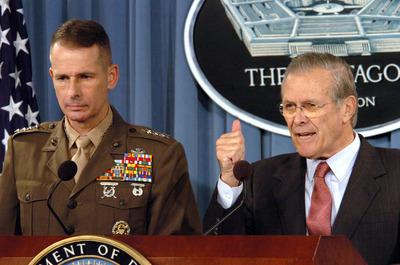Congresspedia Review: This Week in Congress (Jan. 26 - Feb. 1, 2008)
This week, we saw Democrats in the Senate becoming more assertive in their second year as the majority party, as the chamber continued its fracas over electronic intelligence reform and prepared to vote on its own economic stimulus package.
The House on Tuesday passed its version of an economic stimulus bill. Backed by President Bush, the legislation includes tax incentives for business investment and rebate checks for working Americans. However, also on Tuesday, Senate Finance Chairman Max Baucus (D-Mont.), rained on the stimulus parade, signaling his committee would vote on an expanded economic package.
The Senate’s plan for stimulus varies from one drafted in the House. The Senate version would offer tax rebates check to more Americans, including seniors and the wealthy. However, those rebates would be worth less compared to the House proposal: $500 vs. $600 for individuals, and $1,000 vs. $1,200 for couples. It also raises the ceiling for who can get checks: for individuals, $150,000 and, for couples, $300,000. The House ceilings are half as high.
The Senate will take up the House version of the bill on Monday, and will then offer provisions of its plan as amendments. It’s unclear whether Democrats will have enough votes to include a long-term unemployment benefits extension or 5.6 billion in renewable energy and efficiency tax credits. There does appear to be support for funding low-income heating assistance.
There’s more on FISA below the fold including details on a deal reached in the Senate.


 An increase in
An increase in  Former Defense Secretary
Former Defense Secretary  Following a damaging
Following a damaging